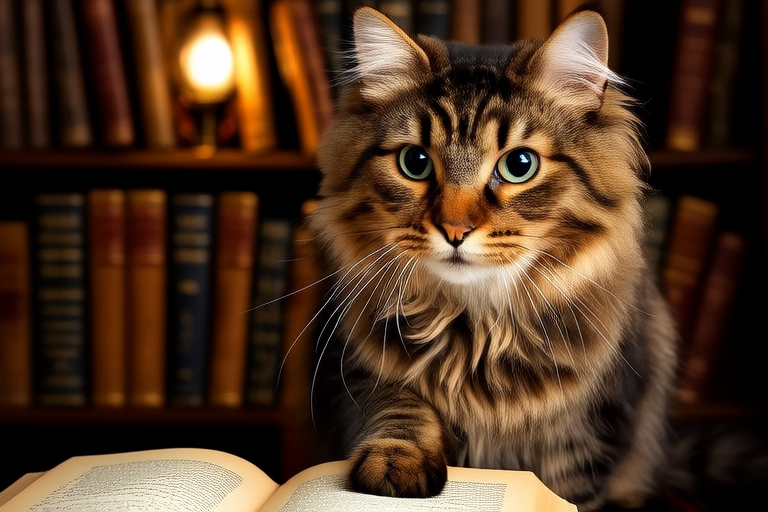Debunking Common Myths About Maine Coons
Maine Coons are one of the most popular and beloved cat breeds around the world. Known for their large size, luxurious fur, and friendly demeanor, they have captured the hearts of many pet lovers. Originating from the state of Maine in the United States, these cats have been recognized for their distinctive appearance and gentle nature since the late 19th century. Maine Coons are often referred to as “gentle giants” due to their impressive size and docile temperament. They are known for their intelligence, playfulness, and affectionate behavior towards their owners.
Myth 1: Maine Coons Are Lazy Cats
One of the most common misconceptions about Maine Coons is that they are lazy and prefer to spend most of their time sleeping. While it’s true that all cats need ample rest, Maine Coons are actually quite active and curious. These cats enjoy exploring their environment, playing with toys, and engaging in interactive games with their owners. Studies show that Maine Coons are highly intelligent and can be trained to fetch toys, walk on a leash, and even learn basic commands. Their playful nature makes them great companions for families and individuals looking for an interactive pet.
Myth 2: Maine Coons Do Not Get Along With Other Pets
Another myth about Maine Coons is that they are territorial and aggressive towards other pets. Contrary to this belief, Maine Coons are generally social and adaptable. They can coexist peacefully with dogs, other cats, and even small animals like birds and rabbits. However, proper introduction and supervision are necessary when bringing a new pet into the household. Early socialization and positive reinforcement training can help ensure a harmonious relationship between Maine Coons and other pets. In fact, many Maine Coon owners report that their cats get along well with various types of animals, making them suitable for multi-pet households.
Myth 3: Maine Coons Are Prone to Obesity
It’s often assumed that because of their large size, Maine Coons are more likely to become overweight. However, obesity in Maine Coons is not inevitable. Like any other cat, their weight depends on factors such as diet, exercise, and overall health. Maine Coons require a balanced diet rich in protein and low in carbohydrates to maintain their muscle mass and energy levels. Regular physical activity, such as playing with toys or providing scratching posts, helps keep them fit and healthy. It’s important for owners to monitor their cat’s weight and consult with a veterinarian to develop a nutrition plan tailored to their specific needs.
Myth 4: Maine Coons Require Extensive Grooming
Some people believe that Maine Coons need constant grooming due to their long, thick fur. While it’s true that their coat requires regular maintenance, the grooming needs of Maine Coons are manageable. Daily brushing can help prevent matting and distribute natural oils throughout the fur, promoting a healthy coat. However, excessive grooming is not necessary unless the cat has a specific health condition or is shedding heavily during certain seasons. Using appropriate grooming tools and techniques can make the process easier and more enjoyable for both the owner and the cat.
Myth 5: Maine Coons Are Suitable Only for Cold Climates
There’s a misconception that Maine Coons are only comfortable in cold climates due to their thick fur. While their dense coat provides excellent insulation against chilly temperatures, Maine Coons can adapt to various climates. Their ability to regulate body temperature allows them to thrive in different environments, including warmer regions. Owners living in hot areas should provide plenty of shade, fresh water, and cooling options such as fans or air conditioning to ensure their cats remain comfortable. Proper care and attention to environmental conditions can help Maine Coons enjoy life in any climate.
Advice for Potential Owners
If you’re considering adopting a Maine Coon, it’s essential to understand their unique needs and characteristics. Maine Coons are intelligent, affectionate, and sociable, making them wonderful companions for families and individuals alike. Providing them with a stimulating environment, regular exercise, and a nutritious diet will contribute to their overall well-being. Additionally, consulting with a veterinarian about their specific health requirements can help ensure a long and happy life for your Maine Coon.
Understanding these cats correctly is crucial for their happiness and your satisfaction as an owner. By dispelling common myths and providing accurate information, we hope to foster a deeper appreciation for this magnificent breed. Whether you’re a seasoned cat owner or considering adding a Maine Coon to your family, taking the time to learn about their unique traits and care needs will enhance your experience with these gentle giants.
Call to Action
We encourage our readers to share their experiences or ask questions about Maine Coons in the comments section below. Your stories and insights can provide valuable information for others interested in this remarkable breed. Together, we can continue to promote awareness and understanding of Maine Coons, ensuring they receive the love and care they deserve.
